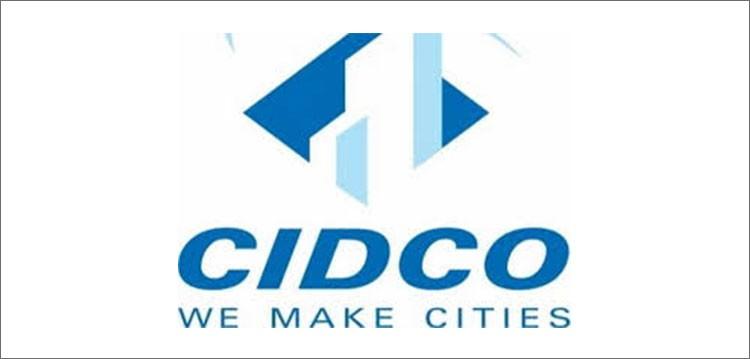 By Advocate R.J. Pandya
By Advocate R.J. Pandya
A Member of a Co-operative Housing Society continues to be a Member till he (she) is dead, resigns from Membership, or is expelled under Section 35 but mostly the problem faced by the Management of a society is on the death of a member with or without a Nomination. Under the Model Bye -Laws for Flat Owners Society, this is made very clearly under Articles 34 to 39. Section 30 of Maharashtra Co-operative Societies Act 1960, deals with the provisions how the interest on the death of a Member is transferred.
When there is a Nomination already filed with the Society Office, the normal impression is that the Nominee on the death of the Member, automatically becomes a Member on filing an Application for Membership by citing the Nomination. This impression or misunderstanding has to be removed The Supreme Court of India has ruled in 1984 that “a Nominee is a mere trustee with whom a Society can initially deal with after the death of a Member. All the legal heirs of the deceased Member have a right of Succession to the property of the deceased Member and a Nominee cannot exclude the other legal heirs”. Therefore, what the above Ruling has done is to clarify for the knowledge and information of all the Societies including the Members and their families that on the death of Member, a Nominee has to follow the procedure laid down under the law, Rules and Bye-laws. This means that normally the Management does not entertain correspondence from outsiders, which also includes the Members and legal heirs of the family of the deceased Member. The arrangement o of Nomination is worked out whereby a person nominated, and as such, on the Records of the Society can enter into correspondence with the Society and initiate the procedure for his Membership to the Society, that’s all. It is here that the rights of a Nominee come to an end. The Mumbai High Court has held in 1981 that “Nomination cannot create any title in property forming part of the estate of the deceased Member in favour of a Nominee. “ 1981, Bom. C.R. 210.
Therefore, a Nominee initiates the correspondence and also files his application for membership to the society and files all the necessary documents but it is here that the Society has to follow the procedure and reply to this Application by informing officially the Nominee that the Application can be considered only after t he (she) brings and files “ NO OBJECTION” to this Membership Application from the rest of the legal heirs of the deceased Member” This is normally in the form of Affidavit sworn before a Notary.
That means, if the Nominee has to be made a Member, the entire family of the decease Member have to concur and support the Application of the Nominee. Therefore, if the above procedure is carefully followed by the Nominee and the legal heirs of the deceased Member, then the Society Management can consider this Application under the prescribed procedure laid down by the law, Rules and Bye-Laws of that Society. This is as far as the Nomination filed with a Society is concerned. It is, therefore, very clear that the Nomination does not create any interest in the Nominee to the exclusion of those who, in law are entitled to the estate. This is only with a view to avoid confusion in case there are disputes between the heirs and legal representatives. This is necessary to avoid uncertainties as to with whom the Society should deal, to get proper discharge. The society has no power to determine who are the legal heirs etc. of a decease Member. Section 30 confers on the Society the power to determine and provides for transfer of Shares and interest of the deceased Member’s property i.e. the flat and the Membership. Therefore, the persons entitled to the estate of the deceased do not lose their right to the estate, which also includes the particular flat of the deceased Member. The Society only follows the provisions for transferring the Share Certificate and interest to a Nominee or to the legal heirs etc. as will be decided by the Society under the above procedure. The idea is to provide for a proper discharge to the Society without involving the Society into unnecessary litigation, which may take place as a result of dispute between the heirs. Therefore, it is very clear that on admission to the Membership of a Society, by following the above procedure, a Member continues his Membership only till the estate is administered either by the person entitled to administer the same or by a Court or when the rights of the legal heirs entitled to the estate are decided by the competent Court. In such a case, the Society is bound to follow such decision. This was decided in the matter of Gopal Vishnu Ghatnekar V/s. Madhukar Vishnu Ghatnekar reported in 1982 Maharashtra Law Reporter.
Rule No.25 and 26 of Maharashtra Co-op. Society Rules should also be noted in this matter. IT is held in the matter of Sujadekar V/s. S.S. Sahakari Farming Society Limited that on the death of a father, the son cannot be treated as a Member of the Society unless his application for membership is accepted by the society and admitted to be a member. This means that the above procedure must be carefully followed by the Management of a Society. This is reported in C.T.D. 1966.
When there is no nomination filed with the society, all the legal heirs of the deceased Members have a right to claim Membership to the society in respect of the flat. Therefore, if the deceased Member left a Will, arrangement will have to be made for a probate, a true copy of which will be filed with the society by the eligible legal heirs under the Will. If there is no will left, that means, if the Member died intestate, the normal rules of succession applicable to the deceased Member under the law, will be made applicable. This will mainly include the particular law to which the deceased was governed at the time of his death including personal law as well as other provisions like the Indian succession Act etc, under which case, a succession certificate or Letters of Administration will have to be arranged from the High Court in Mumbai or elsewhere from the District Court to file the Membership to the Society. Lastly, it is held in 1981, C.T.J., pg. 312, that all the question of Membership to a Society do not cone under Section91, and therefore, a Co-operative court has no jurisdicition to entertain any Application/Petition/Dispute to decide the Membership. The sole prerogative in deciding Membership of a society is vested only in the Registrar acting through the Deputy or assistant Registrars in the particular Ward office under the arrangement worked out in this matter. That means any application or question regarding Membership to a society, if not finally decided by a society will be ultimately completed by Registrar of society only, and not in a Co-operative court. That means, for Admission matters, Sections22 and 23 are the main provision to deal with by a society. Appeals against the Order is this matter are to be filed with the Divisional Joint Registrar of Appeals, Mumbai Region societies, whose office is at 6th floor, Malhotra House, opp G.P.O, Mumbai 400 001, whose jurisdiction also include Thane District.



